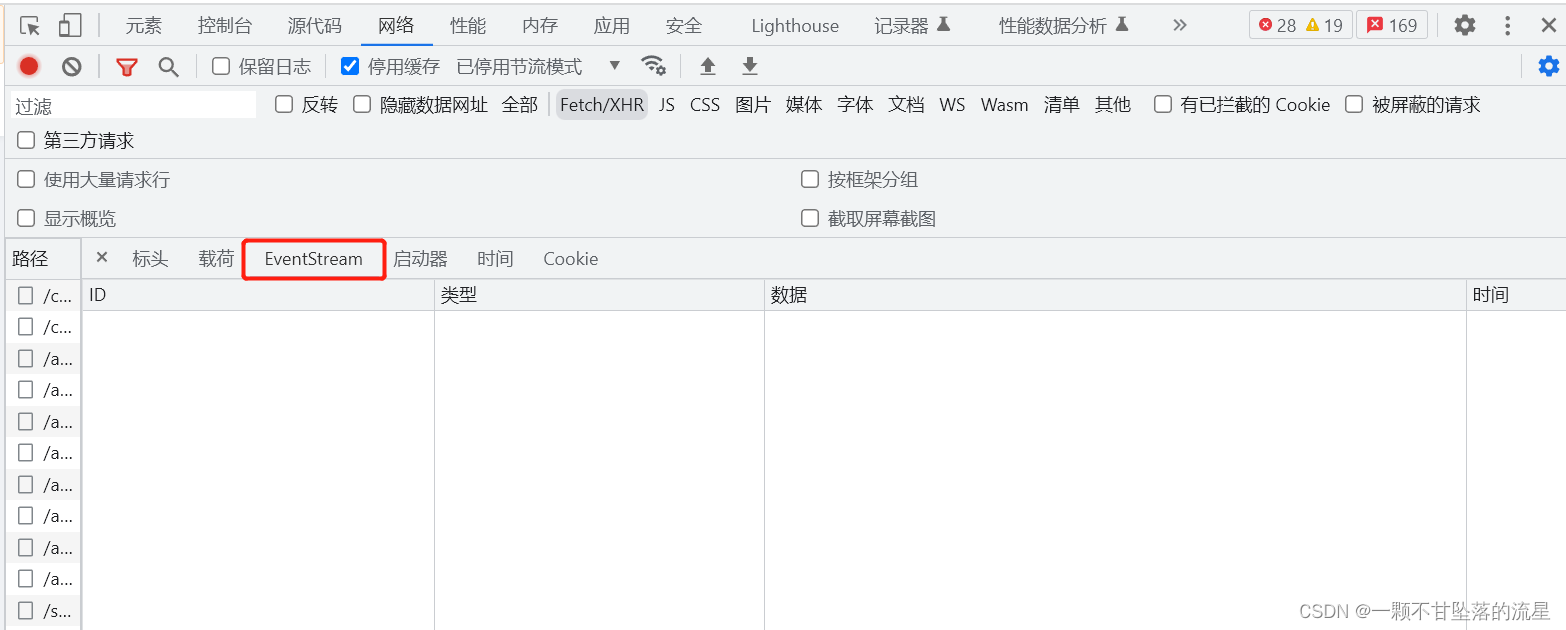阅读量:2
文章目录
EventStream 是一种服务器推送的数据格式,可以用于实时数据传输。
接口返回的示例图

获取示例:
// 这里的 url 为虚拟的,仅供演示用 fetch(`https://test.cn.com/api/agent/2`, { method: 'POST', headers: { 'Content-Type': 'application/json', }, mode: 'cors', credentials: 'include', body: JSON.stringify({ messages: '测试文案,可修改', id: 76, }), }) .then((response) => { const decoder = new TextDecoder('utf-8'); let buffer = [] // 获取可读流 const reader = response.body.getReader(); // 读取数据 function read() { return reader.read().then(({ done, value }) => { if (done) { // 这里就能拿到完成的 buffer console.log('Stream 已经读取完毕', buffer); // 如果需要使用到完整的数据,可在这里使用,useData是你要使用数据来干嘛的函数 useData(buffer) return buffer; } // 读取每段流的数据块 const chunk = decoder.decode(value, { stream: false }); // 由于数据块中可能包含多段数据,需要额外拆分成单段数据,具体因单段数据结构而异,这里不演示 // 例如正常是:'{a: 1}' 结构,我们使用 JSON.parse 就能转换成对象结构。 // 结果返回了 '{a: 1}{a: 2}' 两段拼接在一起的数据,这种需要自行处理为:[{a: 1}, {a: 2}] const list = parseMultiJson(chunk); // 封装一个自定义函数parseMultiJson去处理. // 如果需要每获取一段数据,就使用到一段数据,那就在这里使用,useData是你要使用这段数据来干嘛的函数 useData(list) // 把处理好后的数据合并到 buffer中 buffer = buffer.concat(chunk); // 继续读取 return read(); }); } // 开始读取 return read() }) .catch((error) => { console.error('Error:', error); }) - 上文中用到的
parseMultiJson函数:函数链接
